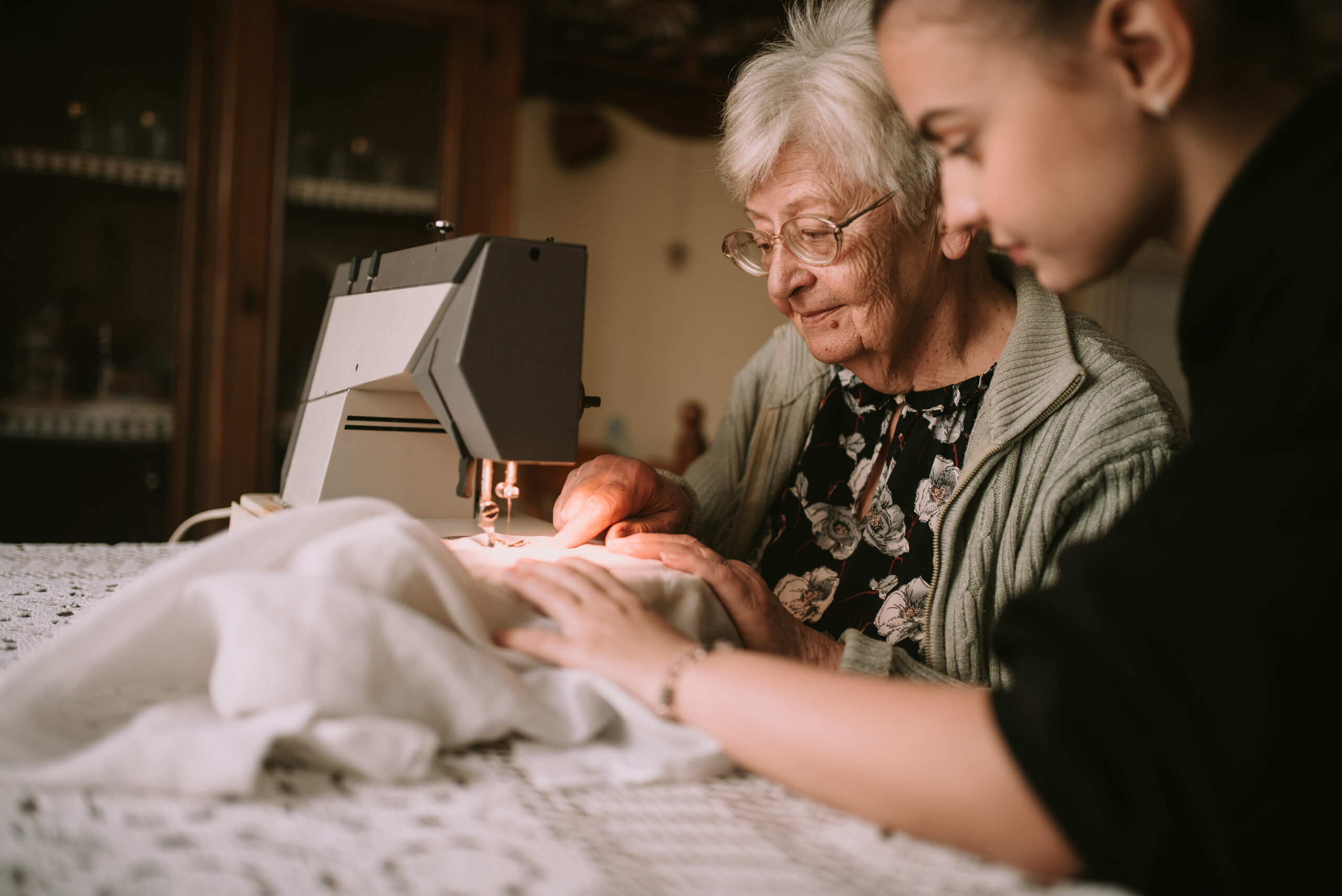Building a Village, One Outcome-Based Program at a Time
January 3, 2014 – Marlene Petersen, Executive Director, describes the approach that SSPTV uses to serve over 3,000 seniors a year as “taking care of the whole person.” The organization serves the Tri-Valley area – encompassing the cities of Pleasanton, Livermore and Dublin. It’s a unique community that is fairly isolated from the rest of Alameda County services, and because of that, SSPTV has formed an eclectic set of services in response to local needs.
One-Stop Shop
SSPTV has a fortunate location, on the site of the Pleasanton Senior Center. This allows visibility and, so seniors can find SSPTV, and helps Petersen’s staff coordinate with a host of other senior programs (among them health insurance counseling, meals, educational programs, etc.). Petersen’s staff connects seniors, assisting with applications and navigating any enrollment process. People in crisis often need more than a referral; they need an assessment to determine the right referral, an introduction, and an understanding of what help to ask for. Says Petersen, “We built ourselves on watching and listening to what seniors are really going through and making sure we don’t add to their problems.”
To connect homebound or isolated seniors with support and community, SSPTV had to develop creative programming and collaborations. “The seniors who come to the senior center and are active in the community, they’ll find us. But there are those who are never going to ask for help but when crisis comes along, they call 911.” Starting in 1981 with a Friendly Visitors program, SSPTV set out to build connections.
A Host of Programs
SSPTV’s Friendly Visitors program started with 35 clients; today the program has 250. Friendly Visitors matches the needs and interests of each senior with those of a volunteer. The program has succeeded in opening doors and lives to fulfilling experiences, and reestablished healthy social connections. Petersen notes the biggest challenge is that “once they become friends, they don’t even remember us.”
SSPTV’s In-Home Counseling Program provides one-on-one counseling and emotional support for seniors in their homes. Counseling in the seniors’ own homes is more likely to be successful because of this inherent comfort level. Says Petersen, many seniors “have lived a lifetime in hiding, from abuse, alcoholic parents, etc., so there’s a lifestyle that now reflects that. It doesn’t come out easily.”
To maintain the individual needs of independent seniors and their support structures, SSPTV provides Case Management and Family Caregiver Support services. Case Managers visit seniors at home for a comprehensive assessment, and create care plans to support seniors’ goals of living independently. Says Petersen, “Everything we do comes from the senior. We’re building trust first and foremost.” To complement this system, SSPTV’s Family Caregiver program helps caregivers with a number of resources, from planning to support groups. “We serve the whole person: body, mind and soul,” says Petersen. Additionally, SSPTV employs monthly monitoring to ensure the senior is following and succeeding with their plan’s outline.
SSPTV’s Finding Wellness is a program intent on developing each participant’s complete understanding of the benefits of nutrition, exercise, and alcohol/drug management. The program combines case management, education and a support group. Classes resemble circles of sharing. “We don’t instruct, instead we converse with seniors” says Petersen. “We get our points across” on the impact of alcohol on older bodies and brains, medication issues, falls, etc.
SSPTV’s philosophy emphasizes friendship and trust. Petersen says this allows them to “help more people because no one is afraid of us. Most people who go through the program, they’re connected and have people that care about them. That’s the biggest success.”
A Community of Partnerships
SSPTV maintains an active partnership with the local Rotary club, annually organizing over 100 volunteers to clean and repair about 100 homes. “The volunteers do gardening, they turn mattresses, sometimes they paint a house – whatever the senior needs.” SSPTV also calls on the Rotary during the year to help seniors with special needs, and has developed similar relationships with local numerous churches. Says Petersen, “It’s so amazing what the community does to make this work. It’s not Senior Support Program standing alone.”
Partnering with local Police and Fire represented a significant milestone in SSPTV’s development. Petersen described the challenge: “Emergency responders would arrive, take the senior to the hospital, but then they’re released from the hospital and sent home with no support. We wanted to make a connection when they went to the hospital, so we could visit them there and let them know services were available.”
Now in its second decade, SSPTV’s partnership with the local Fire Department includes training for first responders. They are trained to recognize dementia and other issues, assess the status of the spouse who is left at home when the caregiver is admitted to the hospital, and to make connections and warm referrals to SSPTV. “Our phone number is in their engine,” says Petersen, and “when the Fire Department says to seniors, ‘You need to work with SSPTV,’ they listen.”
Partnership with Hospitals and Managed Care?
SSPTV is working towards developing partnerships with hospitals. Though they don’t currently bill Medi-Cal or Medicare, “We know we’re the best continuum of care that any of these facilities could ever have,” says Petersen. “When seniors leave that hospital and we’re there, they aren’t readmitted because we’re providing services that prevent them from being back in the hospital.”
Return to the Changing Landscape of Aging Services page.

